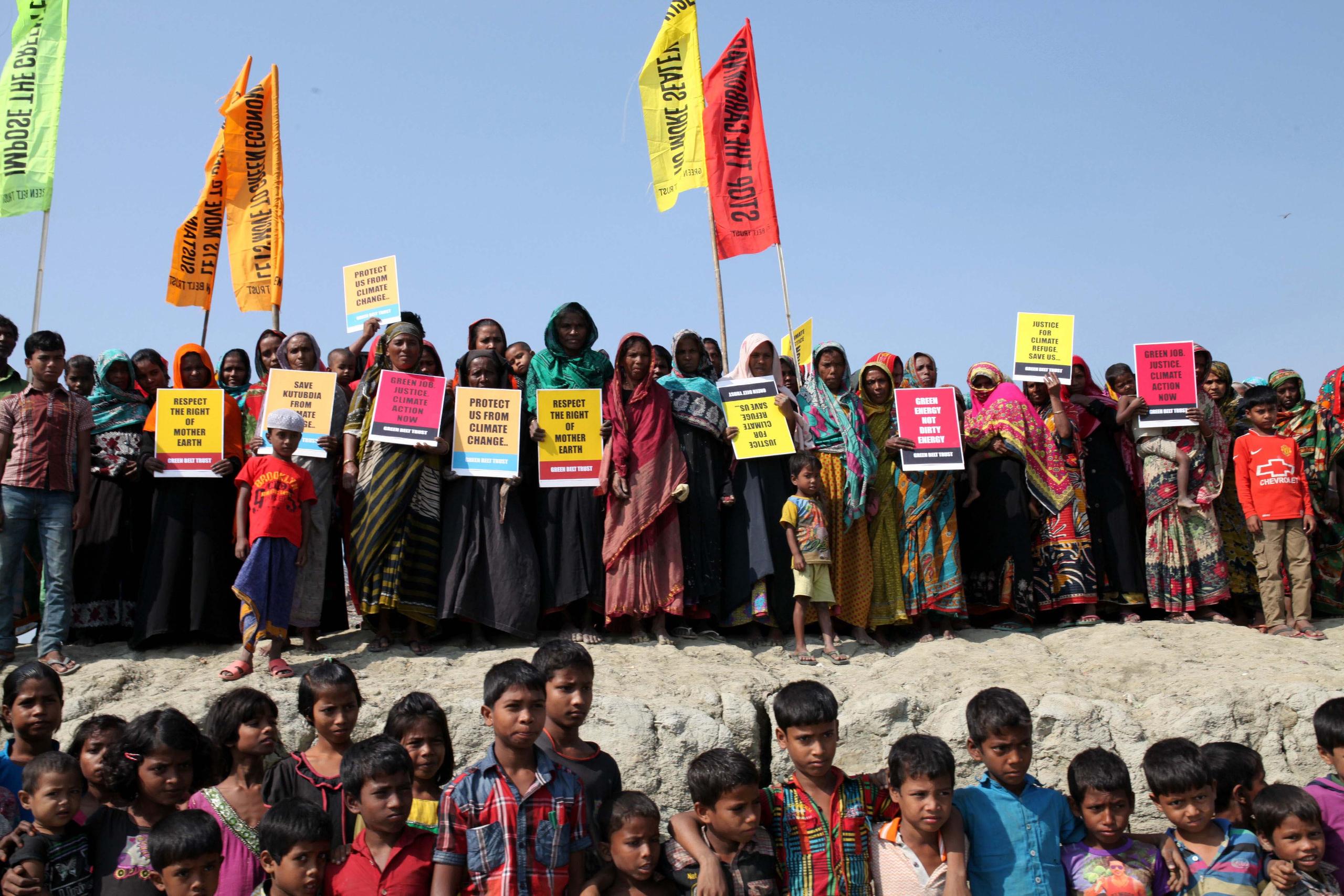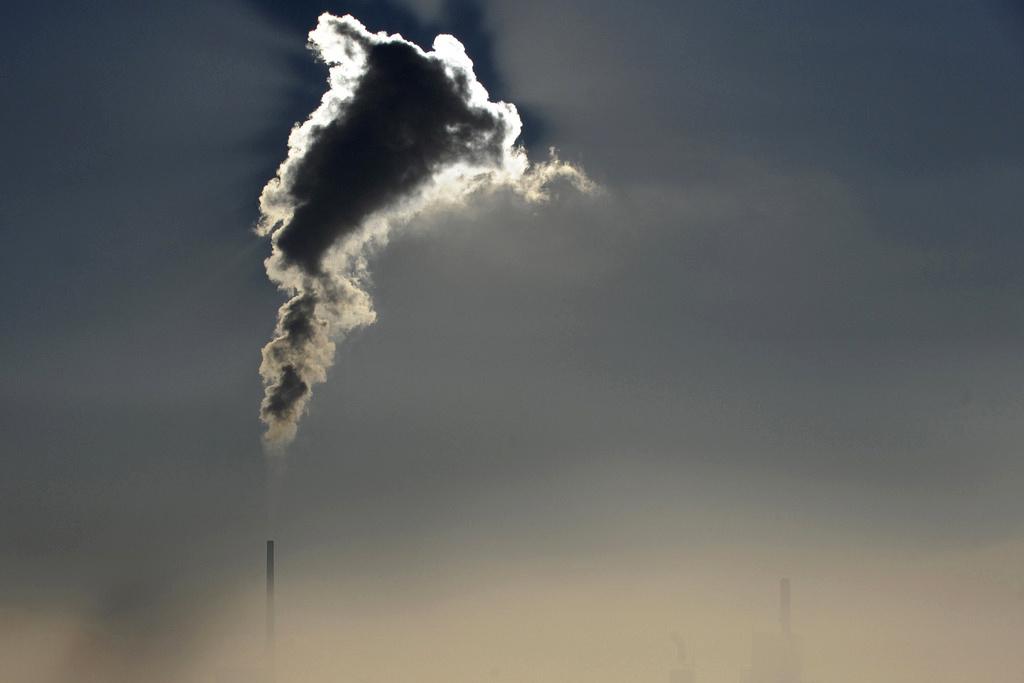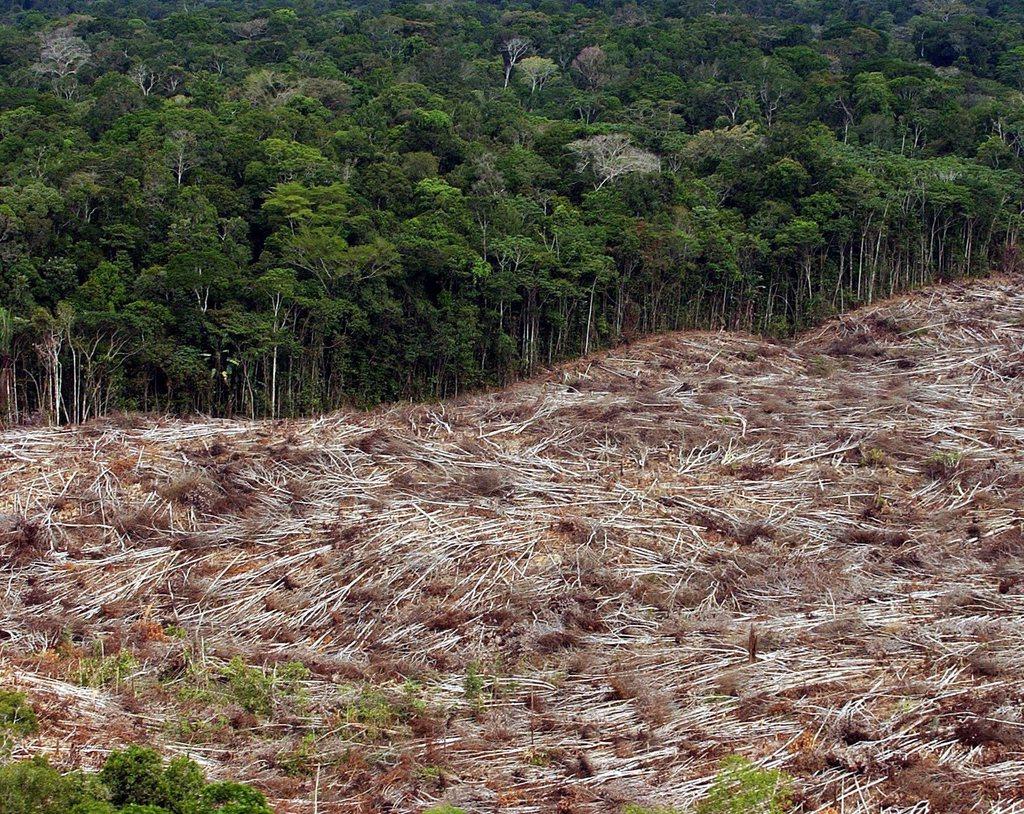Paris deal ‘should mention climate migrants’

Swiss representatives in Paris have called for the growing crisis facing people displaced by the effects of climate change to be high on the agenda of climate talks taking place in the French capital.
“We need to keep the human mobility issue high on the climate change agenda and we need some language in the Paris outcome,” said Walter Kälin, special envoy of the Geneva-based Nansen Initiative, on Wednesday.
The Swiss human rights expert was discussing the initiative – which aims to protect people displaced by sudden natural disasters resulting from climate change – with officials from climate-vulnerable countries at a side event at the COP21 Paris talks.
Bernardino Regazzoni, Swiss ambassador to France, who opened the discussions at the event, explained: “Forced displacement related to disasters including the adverse effects of climate change is a reality and one of the biggest humanitarian challenges facing the international community.”
He said between 2008 and 2014, 184 million people in 120 countries – or one person every second – were displaced globally owing to sudden weather disasters.
The Nansen Initiative process, launched jointly by Switzerland and Norway, provides a toolbox on how to prepare for forced migration due to severe climate change effects. Its agenda was endorsed in Geneva in October by more than 100 countries.
The initiative originates from the 2010 climate change talks in Cancún, Mexico, which recognised that displacement, voluntary migration and planned relocation were part of the challenge of adapting to climate change.
‘Migration as adaptation’
“It was not obvious that mobility would be integrated in an international deal in Paris,” Kälin explained.

More
Graphics to guide you through the climate talks
But he said the United Nations process’s climate adaptation clause should imply that assisting people to stay where they live through resilience programmes and facilitating cross-border migration through international agreements would be part of the international mandate.
“We feel there is an important contribution to be made by Paris. There are many things that can be done to allow people to stay or be displaced. That is very much climate adaptation and risk reduction,” he told swissinfo.ch.
“Migration as adaptation,” was how the growing crisis should be dealt with in the Paris talks, according to Kälin, who added that access to adaptation funding was also important.
On the climate forefront
Henry Puna, prime minister of the Cook Islands, explained that many low-lying Pacific Ocean island states had already experienced climate migration.
He said mass migration occurred for the first time in 1998 after the Cook Islands were washed over by 13-metre waves. The population fell from 600 to 200.
“If an island is swamped by the sea, people have no choice, do they?” Puna said.
There was a “depth of emotions and feelings” of people affected in the region, whose islands may disappear at any time, he explained.
Rae Bainteiti, a youth leader from the Pacific Island country Kiribati, told swissinfo.ch that people do not understand being in a country that is so remote. “We have problems with our water – we are living on brackish water [salt water and fresh water mixed together]. We cannot grow crops.”
Meanwhile, Kälin said that with the Nansen Initiative due to expire at the end of this year, “the idea is to have a group of concerned states that will continue to work on the issues”.
He said discussions to that effect were taking place in Geneva and he was “hopeful that we will come up with an arrangement”.

In compliance with the JTI standards
More: SWI swissinfo.ch certified by the Journalism Trust Initiative


You can find an overview of ongoing debates with our journalists here . Please join us!
If you want to start a conversation about a topic raised in this article or want to report factual errors, email us at english@swissinfo.ch.